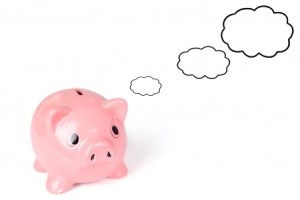 North American stock markets did exceptionally well in 2013. The S&P 500 closed at 1848, beating both its 5 and 10 year highs. That gave the S&P 500 a total return of 29.60% for the year ending 2013.1 Most stock markets around the world also had substantial gains in 2013, and the trend continues into 2014.
North American stock markets did exceptionally well in 2013. The S&P 500 closed at 1848, beating both its 5 and 10 year highs. That gave the S&P 500 a total return of 29.60% for the year ending 2013.1 Most stock markets around the world also had substantial gains in 2013, and the trend continues into 2014.
With returns like that, it’s no wonder investors have been piling into equities. But with the 2008 to 2009 Financial Crisis still fresh in the minds of many, investors are now thinking twice. Bubble talk has led many investors to consider selling their equities, buying bonds and bond funds, or holding cash.
So if stock market highs are making you dizzy and nervous, and you decide to sell, where can you park your cash for the best returns?
Bond Funds
Until recently, bonds and bond funds were a harbour of safety in times of economic turmoil and market mayhem. They certainly were during the 2008 to 2009 Financial Crisis. Not only did bonds offer investors preservation of capital, but they also provided investors a decent return while stocks were plummeting. The TD Canadian Bond Index Fund, gave a return of 5.65% in 2008, and a return of 4.57% in 2009.2 However, investors are now concerned that holding bonds or bond funds, will result in a loss of their capital. That’s because bonds lose value as interest rates rise.
High Yield Savings Accounts
High yield savings accounts, such as CIT Savings, AMEX Personal Savings, Discover Savings among others, also offer investors a decent alternative. The yields are much higher than simply holding cash in a regular savings or brokerage account. With returns of 0.75% to 0.90% these high-yield d savings accounts offer investors a better bang for the buck. In addition many of these high-yield savings accounts are insured through the FDIC (Federal Deposit Insurance Corporation).
Cash Management Funds
Cash Management Funds and Money Market Funds, are essentially mutual funds that invest in a basket of fixed-income securities. So they hold everything from government and corporate bonds, bank deposits, treasury bills, as well as other interest producing securities. They do offer a slightly higher rate of return over high yield savings accounts (including the MER).
However, it’s important to bear in mind that mutual funds are not guaranteed by government agencies, such as the FDIC. Also, most mutual funds charge some type of ongoing annual Management Expense Ratio (MER). In the case of fixed-income and cash management funds, that 0.5% to 1% MER can have a significant impact on your total return.
Conclusion
If you decide to sell some of your equities and hold cash, high yield savings accounts, money market or cash management funds may offer you the best returns. Remember, although cash is king, with ultra-low interest rates it shouldn’t be your long-term investment strategy.
Notes
1. Returns from Standard & Poor’s Indices, S&P 500.
2. TD Canadian Bond Index Fund – e. from TD Asset Management.